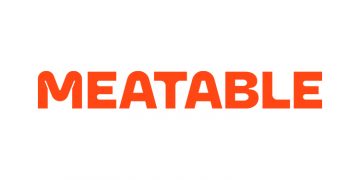In recent years the plant-based trend has moved from being niche into the mainstream, with nearly 1 in 2 consumers across the globe now interested in plant-based foods and beverages[i]. New research[ii] shows that flexitarian consumers are driving the demand for plant-based food. They are especially interested in transparent labels, sustainability, health and food adventures. Here Olivier Chevalier, Senior Product Manager Functional Proteins at BENEO, discusses how plant-based demand has shifted, the improved taste and texture profiles manufacturers are requiring and how functional ingredients are part of the solution.
Reducing meat and dairy is now well and truly on consumer agendas across the globe. BENEO’s latest plant-based consumer survey[iii] shows that one in four consumers globally now call themselves flexitarians, and only 7% across the world identify themselves as vegan, vegetarian or pescatarian[iv]. As flexitarians are now the most important target group for manufacturers of plant-based products, it is important to know what is driving their purchasing in order to effectively tap into this trend.
According to BENEO’s research[v], almost 6 in 10 people are now paying attention to their meat consumption, while more than 3 in 10 are choosing to limit their dairy consumption. When it comes to those who call themselves flexitarians, approximately half buy alternatives to meat (45%) and dairy (49%), with almost 1 in 3 also buying plant-based sweets like chocolate (32%). However, there is room for more growth amongst flexitarian consumers, with an additional third interested in buying dairy and meat alternatives in the future and 42% wanting to explore sweets alternatives.
Key drivers for flexitarian repeat purchasing
Understanding the key motivations and expectations for plant-based purchasing are vital for product development and success in a market that is rapidly growing. According to the BENEO plant-based survey, helping consumers take care of their body, providing variety to their diet and the taste of the product are key to repeat purchasing success.
BENEO’s consumer study revealed value-added insights into consumer expectations for different plant-based categories. The top drivers for flexitarian purchasing for meat alternatives[vi] include bringing variety to the consumer’s diet, being healthy and helping them take care of their body. Animal welfare is also a strong motivator. Similarly, for flexitarians purchasing dairy alternatives[vii], taking care of their body is a key driver, as is the natural origins of the ingredients used in the product, as well as supporting a well-balanced diet. Finally, for flexitarians looking to purchase plant-based bakery and sweets[viii], the top drivers are that the ingredients used are natural, that they help consumers take care of their bodies and that they bring variety to their diet. Not surprisingly, for all the categories, the plant-based alternative’s taste is also a key driver to repeat purchase.
Preferred nutritional claims
For all plant-based applications, delivering a better nutritional profile is crucial and brands need to build their ‘better-for-you’ credentials to convince flexitarians across the globe. It is therefore no surprise that on-pack messaging that re-enforces clean and cleaner label priorities is proving popular. Some of the most popular claims for flexitarians include ‘natural ingredients’, ‘low in fat’, ‘low environmental impact’, ‘additive-free’, ‘easy-to-digest’ or ‘low in sugar’.
Future gazing
It isn’t just getting the right on-pack messaging that is important. Flexitarian consumers are also looking to producers to deliver more excitement and adventure – in the right format – for their plant-based eating. For example, half of flexitarians want to keep up with the latest food trends and almost half of European consumers are interested in hybrid format products that combine meat and plant-based proteins[ix]. For those interested in plant-based dairy alternatives, matching the taste and texture of dairy is key[x] and for plant-based chocolates, flexitarian consumers are wanting the brands they buy to excite and stimulate the senses with high quality, trusted ingredients[xi].
Overcoming sensory barriers
With taste such an important buying incentive for flexitarians, producers need to choose high quality ingredients that have a clean, neutral taste for their meat, dairy and chocolate alternative product development. In the past, the taste of plant proteins had a limiting effect on their appeal. However, thanks to increasing efforts in new product development, companies such as BENEO have developed high quality plant proteins with a neutral taste and other technical benefits, that deliver in terms of both taste and texture. For example, BENEO’s BeneoPro W-Tex textured wheat protein range allows to develop meat-free juicy products like plant-based burgers, meatballs, sausages, or chicken strips. In addition, BENEO’s specialty rice ingredients are ideal clean label texturising ingredients in dairy, bakery, and chocolate alternatives. They create stable and creamy textures with a soft, smooth mouthfeel.
– Ends –
For further information on BENEO and its ingredients, please visit: www.beneo.com and www.beneo.com/news or follow BENEO on Twitter: @_BENEO or LinkedIn: www.linkedin.com/company/beneo
BENEO has long-term experience in developing and producing ingredients from natural sources for food, feed and pharmaceutical products. These plant-based functional ingredients help improve the nutritional and technical properties of a wide variety of products, by supporting health and optimising taste and texture. The company’s portfolio includes functional carbohydrates from sugar beet, prebiotic chicory root fibre, plant-based proteins and speciality ingredients from rice. Through a unique chain of expertise, including the BENEO-Institute that provides decisive insights into nutrition science and legislation, and the BENEO-Technology Center that consults in application technology, BENEO supports customers by providing ingredients that promote a healthy lifestyle in a holistic way.
Formed in 2007, BENEO is active in over 80 countries, employs more than 1000 people and has five state-of-the-art production sites in Belgium, Chile, Germany and Italy.
[i] BENEO Global Plant-Based Survey 2021 – Insites Consulting conducted an online quantitative survey in July 2021 in Spain, France, Germany, Poland, UK, US, Brazil, Australia, China and Russia: 1000 consumers/ country = 11,990 consumers in total. [48% gives a score of 7 or more on interest in plant-based nutrition N=11990]
[ii]BENEO Global Plant-Based Survey 2021
[iii]BENEO Global Plant-Based Survey 2021
[iv] BENEO Global Plant-Based Survey 2021 (Filter: Flexitarians (N = 2905))
[v]BENEO Global Plant-Based Survey 2021
[vi] BENEO Global Plant-Based Survey 2021 (Filter: Meat & Fish Consumers & Flexitarian)
[vii] BENEO Global Plant-Based Survey 2021 (Filter: Global Dairy Consumers & Flexitarian)
[viii] BENEO Global Plant-Based Survey 2021 (Filter: Global Bakery & Sweets Consumers that are flexitarian)
[ix] BENEO Global Plant-Based Survey 2021 (Filter: Meat & Fish Consumers)
[x] BENEO Global Plant-Based Survey 2021
[xi] BENEO Global Plant-Based Survey 2021




















